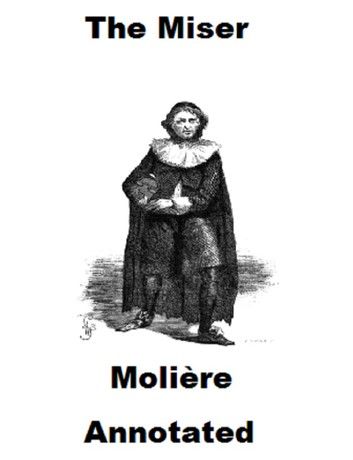The Miser is a five-act comedy in prose by the French playwright Molière. It was originally performed on September 9, 1668, in the theatre of the Palais-Royal in Paris.
The miser of the title is called Harpagon, a name adapted from the Latin harpago, meaning a hook or grappling iron. He is obsessed with the wealth he has amassed and always ready to save expenses. Now a widower, he has a son, Cléante, and a daughter, Élise. Although he is over seventy, he is attempting to arrange a marriage between himself and an attractive young woman, Mariane. She and Cléante are already devoted to each other, however, and the son attempts to procure a loan to help her and her sick mother, who are impoverished. Élise, Harpagon's daughter, is the beloved of Valère, but her father hopes to marry her to a wealthy man of his choosing, Seigneur Anselme. Meanwhile Valère has taken a job as steward in Harpagon's household so as to be close to Élise. The complications are only resolved at the end by the rather conventional discovery that some of the principal characters are long lost relatives.
This edition has been formatted for your reader, with an active table of contents. It has also been annotated, with additional information about the play and its author, including an overview, summary, roles, sources, adaptations, biographical and bibliographical information.












